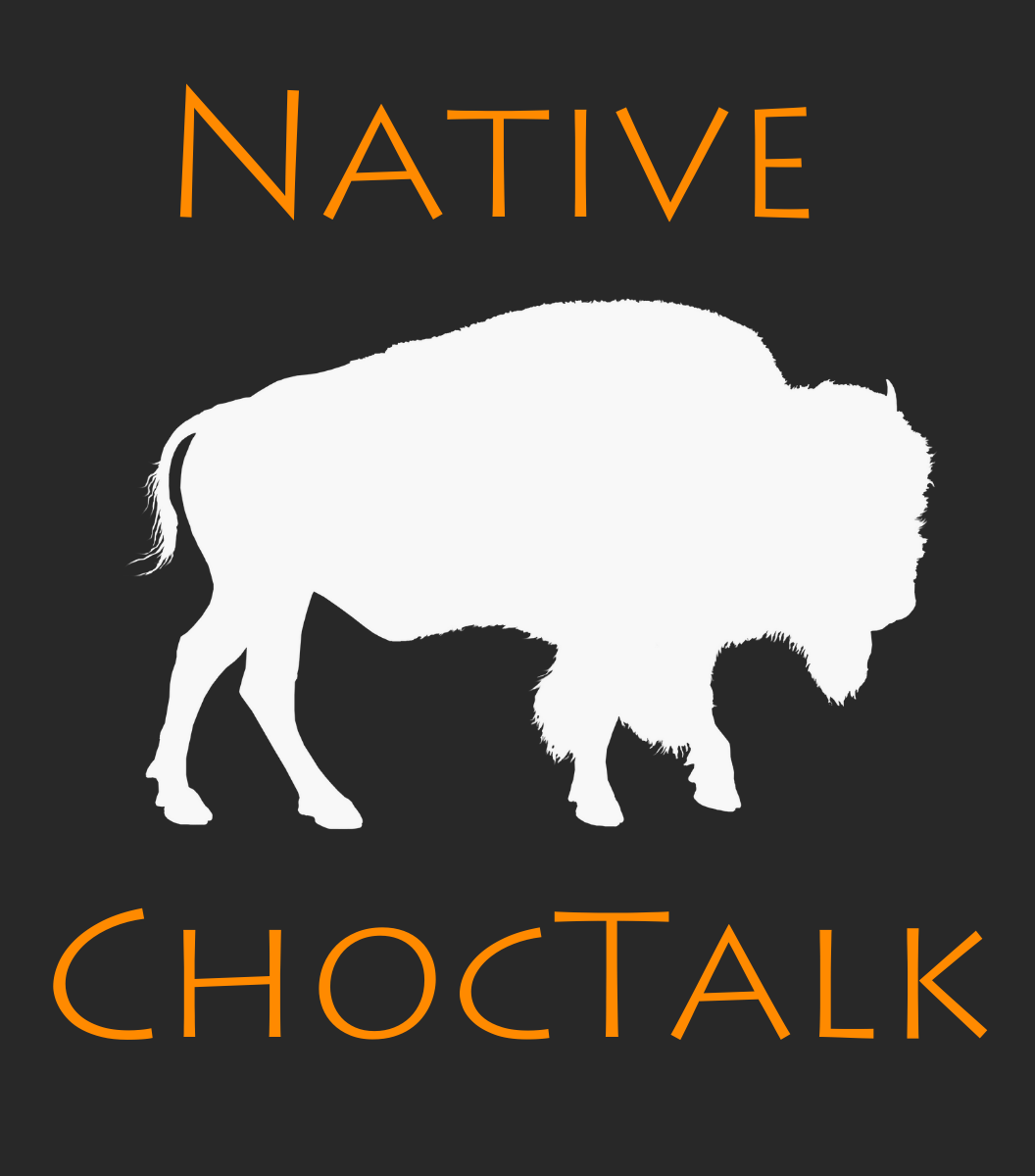Episodes
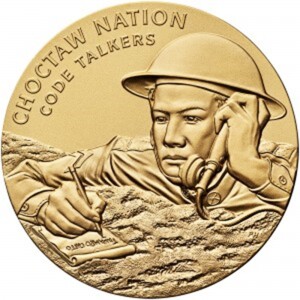
Thursday Mar 07, 2024
Thursday Mar 07, 2024
I hope you’ll enjoy the final episode of this 5-part series on the most requested topic from my listeners – The Code Talkers.
Meet scholar and Anthropologist, Dr. William Meadows, Professor at Missouri State University who shares about the groundbreaking research detailed in his book, “The First Code Talkers, Native American Communicators of World War I”. Get ready to experience a mix of oral history, individual soldiers’ accounts and newspapers, truly bringing these heroes’ stories to life.
You can find Dr. Meadows’ book here and in many online and retail shops: http://tinyurl.com/bdfwp2kb
In episode 5 you’ll hear about:
• Our Osage, Comanche, Ho-Chunk, Oklahoma Cherokee and Sioux heroes of WWI.
• The Congressional Code Talker Medals
• Quite a few stories and facts you may not have known about the Code Talkers
Yakoke to the brave Native American men and women who have served our country and all our Veterans! And many thanks to Dr. Meadows for sharing his research with us.
Native ChocTalk Facebook page: https://www.facebook.com/nativechoctalkpodcast
All Podcast Episodes: https://nativechoctalk.com/podcasts/
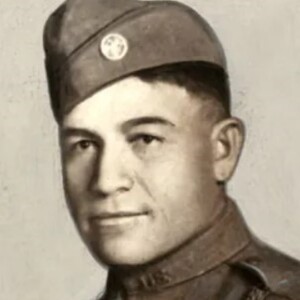
Wednesday Mar 06, 2024
Wednesday Mar 06, 2024
I hope you’ll enjoy episode 4 of this 5-part series on the most requested topic from my listeners – The Code Talkers.
Meet scholar and Anthropologist, Dr. William Meadows, Professor at Missouri State University who shares about the groundbreaking research detailed in his book, “The First Code Talkers, Native American Communicators of World War I”. Get ready to experience a mix of oral history, individual soldiers’ accounts and newspapers, truly bringing these heroes’ stories to life.
You can find Dr. Meadows’ book here and in many online and retail shops: http://tinyurl.com/bdfwp2kb
In episode 4 you’ll learn about:
- The Choctaw Code Talkers
- The fascinating life and story of Sergeant Otis Leader!
- After you’ve read this book, be sure to purchase @sarahelisabethsaywers book on Otis Leader: https://chickasawpress.com/Books/Otis-W-Leader-The-Ideal-American-Doughboy.aspx
- How the Germans regarded the Native American soldiers in high esteem
- Some of the Military Term Choctaw Pronunciation Translations (such as “1st Battalion” was “one grain of corn” and “machine gun” was “little gun shoot fast” in Choctaw)
Yakoke to the brave Native American men and women who have served our country and all our Veterans! And many thanks to Dr. Meadows for sharing his research with us.
Native ChocTalk Facebook page: https://www.facebook.com/nativechoctalkpodcast
All Podcast Episodes: https://nativechoctalk.com/podcasts/
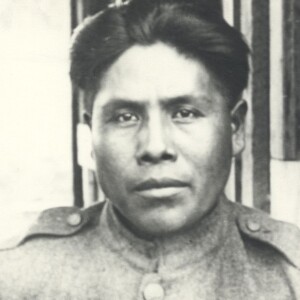
Thursday Feb 29, 2024
Thursday Feb 29, 2024
I hope you’ll enjoy episode 3 of this 5-part series on the most requested topic from my listeners – The Code Talkers.
Meet scholar and Anthropologist, Dr. William Meadows, Professor at Missouri State University who shares about the groundbreaking research detailed in his book, “The First Code Talkers, Native American Communicators of World War I”. Get ready to experience a mix of oral history, individual soldiers’ accounts and newspapers, truly bringing these heroes’ stories to life.
In episode 3 you’ll hear about:
- More about the Choctaw Code Talkers
- Was code talking actually classified as secret after the war and were the code talkers sworn to secrecy about their code talking?
- Choctaws, Benjamin Colbert, Victor Brown, Louis Gooding, Albert Billy, Noel Johnson,
- A deep dive into Joseph Oklahombi – his significant and heroic contributions in battle, the many misconceptions around his actions during the war, and his famous “panther cry”
- We discuss Judy Allen’s book, Joseph Oklahombi and The Panther War Cry which can be found here: http://tinyurl.com/5hf3tuty
Yakoke to the brave Native American men and women who have served our country and all our Veterans! And many thanks to Dr. Meadows for sharing his research with us.
Native ChocTalk Facebook page: https://www.facebook.com/nativechoctalkpodcast
All Podcast Episodes: https://nativechoctalk.com/podcasts/
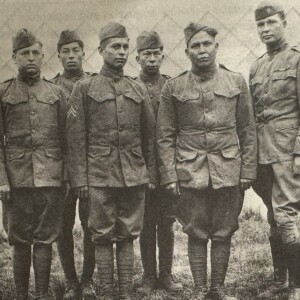
Thursday Feb 29, 2024
Thursday Feb 29, 2024
I hope you’ll enjoy episode 2 of this 5-part series on the most requested topic from my listeners – The Code Talkers.
Meet scholar and Anthropologist, Dr. William Meadows, Professor at Missouri State University who shares about the groundbreaking research detailed in his book, “The First Code Talkers, Native American Communicators of World War I”. Get ready to experience a mix of oral history, individual soldiers’ accounts and newspapers, truly bringing these heroes’ stories to life.
In episode 2 you’ll learn about:
- The Choctaw Code Talkers
- How Native boarding schools prepared many Native American boys for the military.
- The 36th contained nearly 600 Native Americans speaking 26 languages and dialects.
- Natives in sports while serving in WW1.
- Why the 36th became known as the “Millionaire Company”
- The serious impacts of the Germans tapping into Americans communications.
- Why being a “runner” had to have been the worst job in the WWI.
- What launched the first code talking.
Yakoke to the brave Native American men and women who have served our country and all our Veterans! And many thanks to Dr. Meadows for sharing his research with us.
Native ChocTalk Facebook page: https://www.facebook.com/nativechoctalkpodcast
All Podcast Episodes: https://nativechoctalk.com/podcasts/
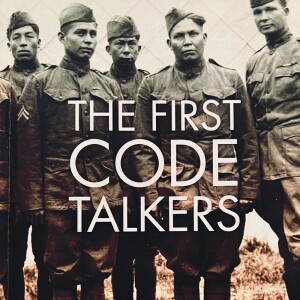
Tuesday Feb 20, 2024
Tuesday Feb 20, 2024
We kick off our first episode of season 6 with a 5-part series on the most requested topic from my listeners – The Code Talkers.
Meet scholar and Anthropologist, Dr. William Meadows, Professor at Missouri State University who shares about the groundbreaking research detailed in his book, “The First Code Talkers, Native American Communicators of World War I”. Get ready to experience a mix of oral history, individual soldiers’ accounts and newspapers, truly bringing these heroes’ stories to life.
You can find Dr. Meadows’ book here and in many online and retail shops: http://tinyurl.com/bdfwp2kb
In this episode you’ll learn about:
- The importance and power of secure communications in military operations.
- How code talking dumbfounded the Germans.
- A 1919 Stars and Strips article stating attributes of Native servicemen, included being good runners, good marksmen, stoic under fire, using signals readily, their “uncanny sense of direction,” in blindfolded tests, scouting and patrol work in combat and their abilities at night.
- The term, “Indian Scout Syndrome”.
- Compared to the total population at the time, Native Americans volunteered at a rate nearly twice that of the rest of the American population.
- The Easter Band of Cherokee in WWI.
Dr. Meadows set out to discover the following in his research:
- Who were the first code talkers? Some think the Navajo, some would guess the Choctaw.
- You may be surprised at the answer!
- Was code talking actually classified as secret after the war?
- What factors led to the formation of Native-language military communicators in World War I?
- Who originated the idea to utilize the Choctaw, and how many were used in WW I?
I hope you’ll enjoy this series on our brave Native American men and women who served our country.
And yakoke for sharing your research with us, Dr. Meadows!
Native ChocTalk Facebook page: https://www.facebook.com/nativechoctalkpodcast
All Podcast Episodes: https://nativechoctalk.com/podcasts/
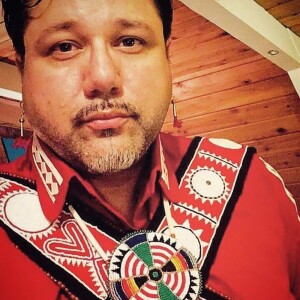
Thursday Nov 16, 2023
Thursday Nov 16, 2023
Last year was the 175th anniversary of the Irish gift*, in which the Choctaw people donated money to the Irish during the potato famine.
This November, we once again honor the spirit of giving, with my Choctaw guest, Sam Guerrero Stitt!
In parts 1 and 2 of this episode, you’ll hear about:
- Sam’s ancestral stories, including his ties to the Irish
- Sam’s Eternal Heart sculpture in Oklahoma will celebrate the Choctaw gift (a companion piece to the Kindred Spirits sculpture in Ireland)
- Sam’s new service, Native American Genealogy! natamgen.com
- Helpful tips on researching our native ancestors
- Is Brett Favre native American?
- The REAL story of David H Folsom
- The Freedmen
- The story of the bullet on the gravestone
- The “blurry” topic of Choctaw clans
- Traditional Choctaw clothing
If you’re searching for your American Indian ancestors, don’t forget to check out Native American Genealogy! www.natamgen.com I’m so excited about this!
*You can hear more about the Choctaw gift and the history of the Great Famine in Native ChocTalk’s Season 3, with Seth Fairchild, Executive Director of the Chahta Foundation here: https://www.youtube.com/watch?v=1qZ8J0juWmA
Native ChocTalk Facebook page: https://www.facebook.com/nativechoctalkpodcast
All Podcast Episodes: https://nativechoctalk.com/podcasts/
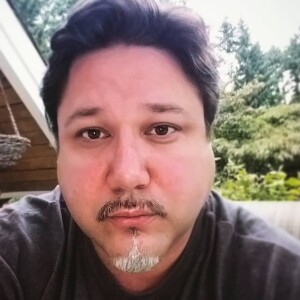
Thursday Nov 16, 2023
Thursday Nov 16, 2023
Last year was the 175th anniversary of the Irish gift*, in which the Choctaw people donated money to the Irish during the potato famine.
This November, we once again honor the spirit of giving, with my Choctaw guest, Sam Guerrero Stitt!
In parts 1 and 2 of this episode, you’ll hear about:
- Sam’s ancestral stories, including his ties to the Irish
- Sam’s Eternal Heart sculpture in Oklahoma will celebrate the Choctaw gift (a companion piece to the Kindred Spirits sculpture in Ireland)
- Sam’s new service, Native American Genealogy! natamgen.com
- Helpful tips on researching our native ancestors
- Is Brett Favre native American?
- The REAL story of David H Folsom
- The Freedmen
- The story of the bullet on the gravestone
- The “blurry” topic of Choctaw clans
- Traditional Choctaw clothing
If you’re searching for your American Indian ancestors, don’t forget to check out NATAM gen Native American Genealogy! www.natamgen.com I’m so excited about this!
*You can hear more about the Choctaw gift and the history of the Great Famine in Native ChocTalk’s Season 3, with Seth Fairchild, Executive Director of the Chahta Foundation here: https://www.youtube.com/watch?v=1qZ8J0juWmA
Native ChocTalk Facebook page: https://www.facebook.com/nativechoctalkpodcast
All Podcast Episodes: https://nativechoctalk.com/podcasts/
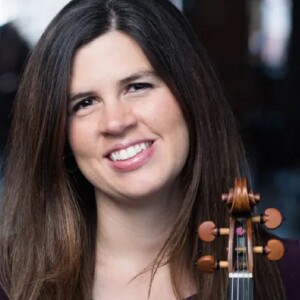
Thursday Oct 19, 2023
S5, E3: Chickasaw Composer, Brandi Berry Benson and the Pa I Sha Story Put to Music
Thursday Oct 19, 2023
Thursday Oct 19, 2023
Listeners, before I share about today’s episode, I have a question for you. Will you be in Chicago, November 7th or 8th of 2023?
I’ll be singing Choctaw hymns and narrating at a Chickasaw concert – Pa I Sha - composed by none other than Chickasaw Composer, Violinist, and Artistic Director, Brandi Berry Benson!
Join us during Native American Heritage Month, on November 8th at 7:00pm at the Epiphany Center for the Arts. Tickets are just $20.
Brandi is also presenting Pa I Sha at no charge, at Upstairs Theater in Evanston Township High School on November 7th at 6:30pm.
You’ll love this episode in which Brandi shares about:
- The Chickasaw flute and other period instruments utilized in the concert
- The inspiration behind Pa I Sha – her 4th great grandmother’s story
- Her ancestral history and stories
- The mysteries surrounding James and Jonas Wolf and the Hyah Puk Tuklo clan – perhaps you can help!
Brandi and I met through a wonderful mutual friend, Chickasaw composer, Jerod Impichchaachaaha’ Tate. By the way, Shell Shaker: A Chickasaw Opera’s will now premier October 27th, 2024 in Oklahoma City!
Brandi, who is faculty of Northwestern and DePaul Universities and the Artistic Director of the Bach & Beethoven Experience (BBE), also teaches Baroque Performance Practice and Ornamentation and has released multiple albums. Check them out at https://brandiberrybenson.com/ and streaming platforms such as apple music, pandora, etc.!
- Silver Linings
- A Gaelic Summer
- An Appalachian Summer
- Chicago Stories
And her BBE Carols Album will be released in December…what a great Christmas gift or stocking stuffer!
Come and enjoy the beautiful work of Chickasaw Composer, Brandi Berry Benson, and happy upcoming holidays to all!
Native ChocTalk Facebook page: https://www.facebook.com/nativechoctalkpodct
All Podcast Episodes: https://nativechoctalk.com/podcasts/
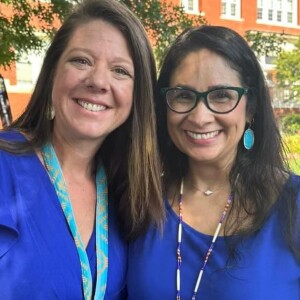
Thursday Oct 12, 2023
Thursday Oct 12, 2023
According to Statistica, “The child abuse rate in the United States is highest among American Indian or Alaska Native victims with a rate of 15.2 cases per 1,000 children. It is most common among children between two to five years of age.”
Now imagine that child being brave enough to come forward to share about her abuse. The process from this point is typically strenuous. Both law enforcement and Child Protection Services conduct separate investigations, which entails the child repeating her trauma multiple times. Depending on her situation, she may be passed around between foster homes, or she could be placed back into a situation where she has to be around her perpetrator again.
And not only could this child fail to receive the emotional and psychological support she needs, but the abuse she suffered will most likely cause negative ongoing affects throughout her life.
There has to be a better way. And there is! Choctaw Nation’s Coordinated Response to Child Maltreatment via their leading Multi-Disciplinary Team (MDT), is the first tribal MDT in the state of Oklahoma and the results are already highly impactful.
My guests, Gina South (Juvenile Division Chief and Assistant Prosecuting Attorney) and Kari Hurst (MTD Coordinator) from the Choctaw Nation of Oklahoma share with us about:
- How the MDT program is serving, protecting and saving the children of the Choctaw Nation
- You’ve heard of McGirt vs. Oklahoma, Gina tells us about the Sizemore decision as well
- Gina’s ancestral stories
Also, check out the beautiful ribbon skirts that Gina makes – they’d make wonderful holiday or birthday gifts! https://tinyurl.com/4d4kn23f
Yakoke to these ladies and to the entire Multi-Disciplinary Teams at Choctaw Nation (law enforcement, medical teams, prosecutors, behavioral health experts, forensic interviewers, therapists, and victim advocates) who are advocating for our precious children!
Native ChocTalk Facebook page: https://www.facebook.com/nativechoctalkpodcast
All Podcast Episodes: https://nativechoctalk.com/podcasts/
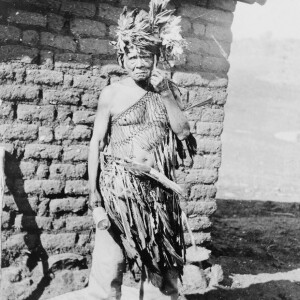
Thursday Oct 05, 2023
Thursday Oct 05, 2023
Part 2 of 2
Imagine an afterlife where your people sing beautiful “bird songs” to you, as you venture into the next world to comfort you along your journey. And imagine over the decades, these beautiful bird songs – the songs of the Kumeyaay people – slowly drifting away, at risk to be forgotten over time.
My guest, Chris Alvarado, San Pasqual iPai Kumeyaay Nation and Founder, and President of The Yumans, spent many years searching for old recordings of elders singing these ancient songs. And by nothing short of a miracle, he finally discovered these precious recordings. And you won’t believe how he found them!
Chris was compelled to share, rather than withhold these sacred songs. And now he’s here to sing these pieces for us today, and he has also provided a complimentary curriculum so that you too can hear and learn about them!
In this episode, you’ll also learn about:
- Kumeyaay culture, ancient games like peon, dances and the origination of the bird songs
- Learn about the patterns of the bird songs and the instruments used
- The reservation where Chris grew up
- The history of the Yumans and how they won California for America by fighting Mexico
I highly recommend watching this episode on YouTube since Chris shares visuals throughout the conversation.
Check out Chris’ Yumans website, and enjoy learning about the Bird Songs, Kumeyaay language, training, quizzes at NO CHARGE! https://theyumans.com/
Learn more about the San Pasqual Band of Mission Indians: https://www.sanpasqualbandofmissionindians.org/
Enjoy!
Native ChocTalk Facebook page: https://www.facebook.com/nativechoctalkpodcast
All Podcast Episodes: https://nativechoctalk.com/podcasts/

